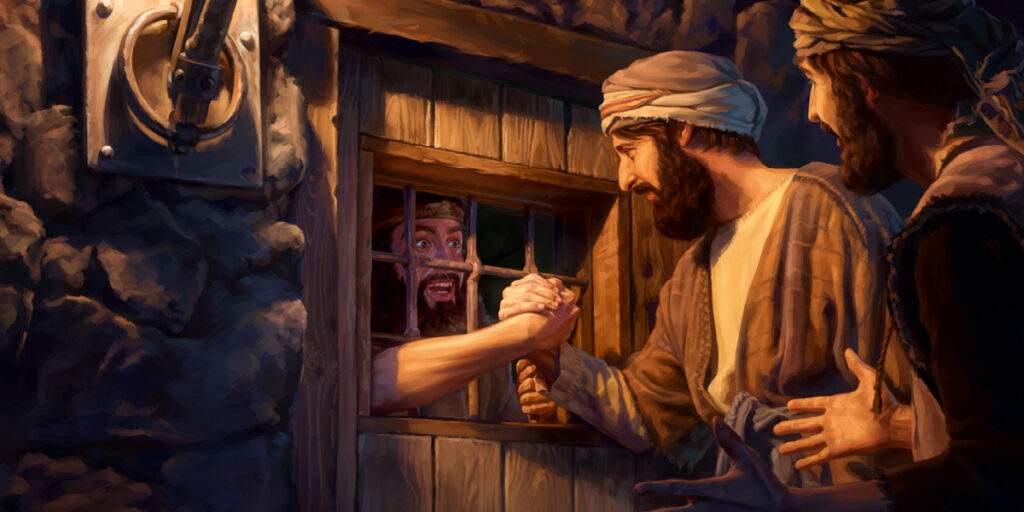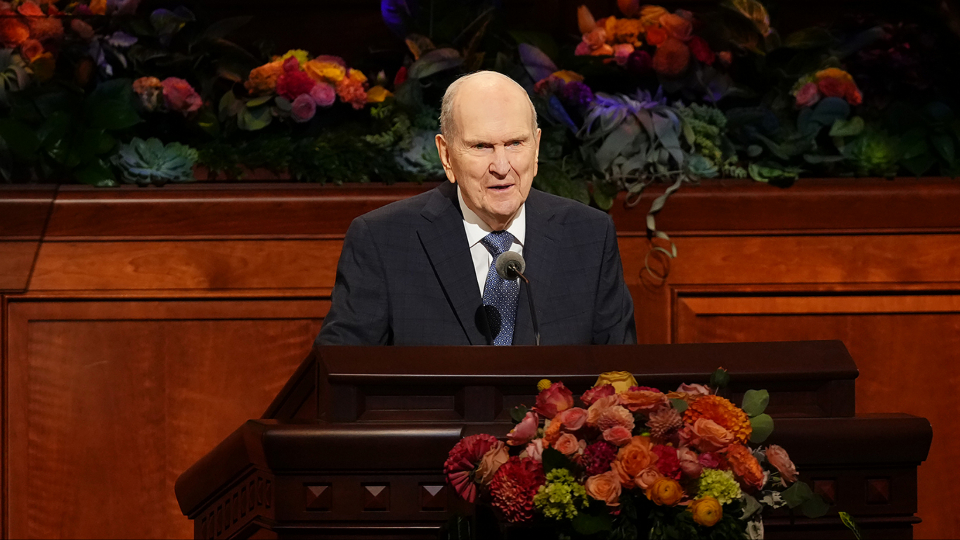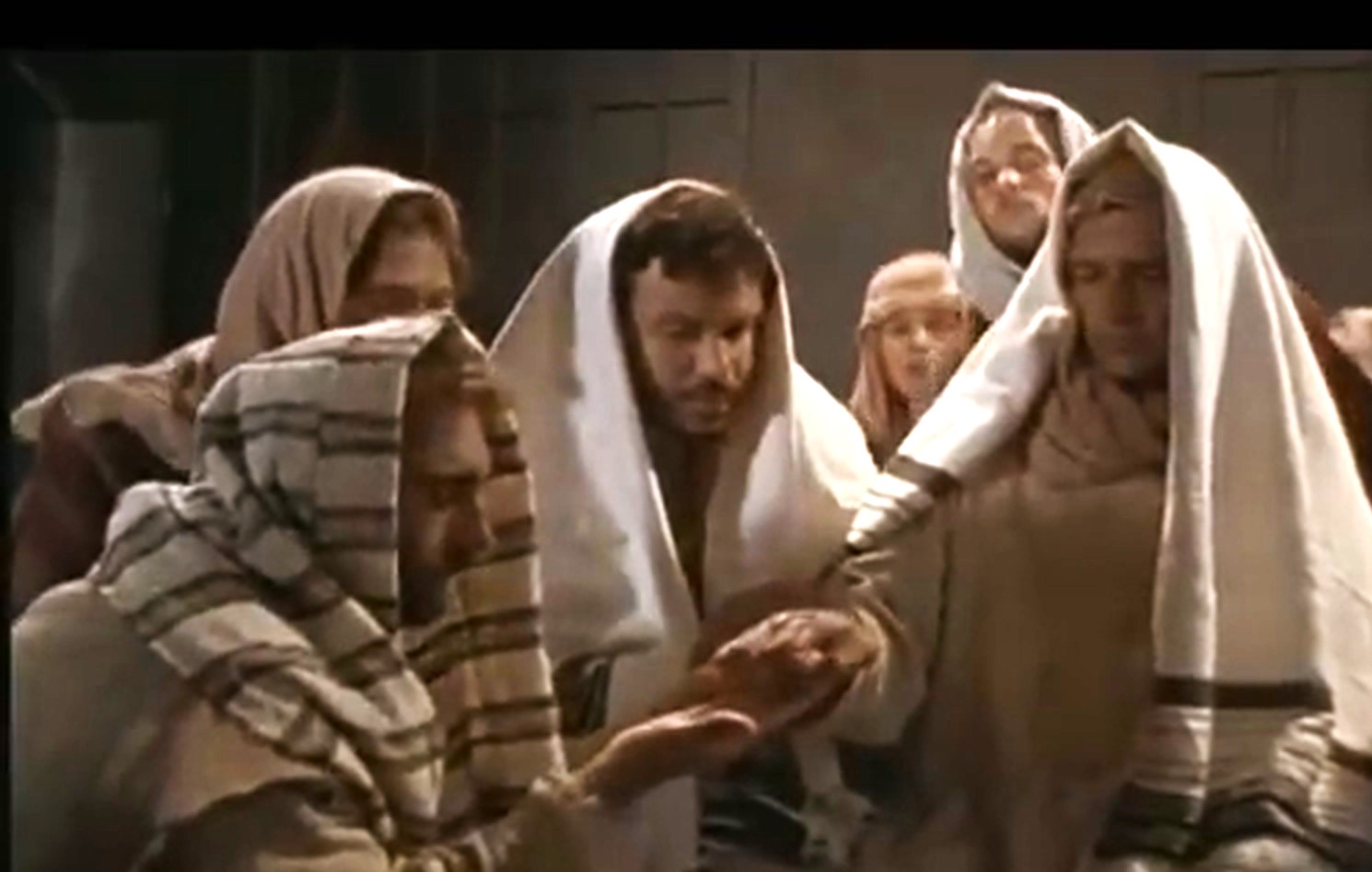To accompany your Come Follow Me study for March 13-19
In addition to reading the indicated chapters, you may wish to:
- Read the applicable portions of the New Testament Institute Student Manual at
- Watch the following related video segments:
- Come Follow Me (Mar 13-19) Matthew 11-12; Luke 11 | The Sabbath Police at Come Follow Me (Mar 13-19) Matthew 11-12; Luke 11 | The Sabbath Police – YouTube
- Jesus Acclaims John the Baptist / Come unto Me at https://www.youtube.com/watch?v=S4uK6kUfoyQ
- A House Divided at https://www.youtube.com/watch?v=2D7AiufhXms
- The Gospel According to Matthew (from minute 1:17:15 to 1:36:53) at https://www.youtube.com/watch?v=woAhReBytBk&t=6494s
- The Gospel of Luke (from 1:57:03 to 2:06:00) at https://www.youtube.com/watch?v=2PHPLApTt7Y
If you would like a Kahoot game related to this material which you could use for personal study or use with your family or your class, click here: https://create.kahoot.it/share/matthew-11-12-luke-11/a39b53db-e705-494c-b368-1d53ba783410. (To use it with a group, after clicking on this link, you will need to log into Kahoot, creating a free account if you have not done so previously, then click on the blue “Start” button.)
Points to Ponder in Matthew 11-12; Luke 11
This week we will not focus so much on the specific events and miracles of these chapters, many of which we’ve encountered before, as on some classic teachings of Jesus which we encounter for the first time in Matthew 11-12 or Luke 11.
1. Did John the Baptist have second thoughts about whether Jesus was really the Messiah? Why did he send messengers to Jesus in Matthew 11:2-3 to ask Him?

2. What does Jesus mean in Matthew 11:14 when he says that John the Baptist was “Elias [or Elijah], which was for to come”?
3. What general principle, applicable to us, can we deduce from Jesus’ rebuke of the cities of Chorazin, Bethsaida, and Capernaum, and why would it be more tolerable for Tyre, Sidon, and Sodom at judgment day than for them? (Matthew 11:20-23)
4. What things is Jesus talking about in Matthew 11:25 that were hidden from the wise and prudent but revealed unto babies? Since babies typically can’t even talk, how would we even know that anything was revealed to them?
5. What special use could missionaries make of Matthew 11:27?
6. Why do some Church members feel overburdened by Church activity and responsibilities, when Jesus in Matthew 11:28-30 says his yoke is easy, his burden is light, and the faithful will find rest?

7. Who gave a masterful talk in the October 2022 general conference with special relevance to Matthew 11:28-30? What most impressed you from his message?
8. What does Jesus mean when He applies Isaiah’s prophecy to Himself, that the Messiah “shall not strive, nor cry; neither shall any man hear his voice in the streets”? Didn’t Jesus “strive” as hard as He could all His life? Didn’t he teach and heal people in the streets?

9. How do we harmonize Matthew 12:30, “He that is not with me is against me,” with Luke 9:50, which says “He that is not against us is for us” or Mark’s similar quote in Mark 9:40 that “He that is not against us is on our part”?
10. What specific applications can you see for Jesus’ warning in Matthew 12:36 that “every idle word that men shall speak, they shall give account thereof in the day of judgment”?

11. Why does Jesus indicate that those who seek after signs are an “evil and adulterous generation”? Why would there be any relationship between sign seeking and adultery?

12. What application can we make of Jesus’ teaching in Matthew 12:43-45 about the unclean spirit who leaves a man but comes back with seven other spirits more wicked than himself?
13. What are we supposed to learn from Jesus’ parable about the friend at midnight in Luke 11:5-8? Are we really supposed to pester the Lord until He gives in?

14. Can you expand upon Jesus’ message criticizing how the Pharisees washed their dishes in Luke 11:39?
15. What could a missionary do with Luke 11:42?
16. What of interest and importance do we know about the “Zacharias” who “perished between the altar and the temple”? (Luke 11:51)
17. What did Joseph Smith add to Luke 11:52 to clarify what the “key of knowledge” was?
Possible Answers to Points to Ponder in Matthew 11-12; Luke 11
1. Did John the Baptist have second thoughts about whether Jesus was really the Messiah? Why did he send messengers to Jesus in Matthew 11:2-3 to ask Him?
Robert J. Matthews offered this explanation: “The question they were to put to Jesus was for their edification, not for his own. John knew, as no one else knew, who Jesus was, and he had known it for a long time. He had had revelation from heaven to this effect: he had seen with his eyes, he had heard with his ears, and he had the testimony of the Holy Ghost. … The most satisfactory answer seems to be that John sent his disciples to question Jesus about his identity so that they themselves would at long last realize the truth of what John had been testifying” (A Burning Light: The Life and Ministry of John the Baptist [1972], 92).
2. What does Jesus mean in Matthew 11:14 when he says that John the Baptist was “Elias [or Elijah], which was for to come”?
Jesus, of course, is speaking figuratively. He is not saying that John is the reincarnated ancient prophet but that just as Malachi foretold Elijah’s coming to help prepare the way for the Savior’s Second Coming, so did John, in that same spirit, come to prepare the way for His first coming. This is a good example of how some ancient prophecies can have more than one application or fulfillment.
3. What general principle, applicable to us, can we deduce from Jesus’ rebuke of the cities of Chorazin, Bethsaida, and Capernaum, and why would it be more tolerable for Tyre, Sidon, and Sodom at judgment day than for them? (Matthew 11:20-23)
Jesus is here teaching that where much is given, much is expected. He had not only preached in the above-mentioned cities of Galilee but had done “mighty works” in them. In spite of it, the people of those cities had largely rejected Him. Their fate will therefore be worse than that of the inhabitants of the cities of Tyre, Sidon, and Sodom, which had not been so blessed, but which, according to Jesus, would have repented had they seen the same signs.
4. What things is Jesus talking about in Matthew 11:25 that were hidden from the wise and prudent but revealed unto babies? Since babies typically can’t even talk, how would we even know that anything was revealed to them?
Jesus’ statement could refer to gospel truths generally, and especially to what He mentions two verses later: to “know” both the Father and the Son. The “babes” to which He refers are not necessarily literal infants, though we remember an incident in the Book of Mormon where children had greater things revealed unto them than their fathers had. But it could refer to young children, or even to those “born again” into the gospel and who were thus “babes” spiritually speaking and who through revelation had greater spiritual insight than the worldly wise and educated who were too proud to hear the Spirit’s voice.
5. What special use could missionaries make of Matthew 11:27?
If one whom the missionaries are teaching has been taught that there is no such thing as modern revelation, the missionaries could show that this passage, coupled with John 17:3, shows that latter-day revelation is not only possible but essential. If life eternal depends on knowing God (John 17:3), and if He can be known only through revelation (Matthew 11:27), it is of utmost importance that not only Church leaders but every member enjoy personal revelation.
6. Why do some Church members feel overburdened by Church activity and responsibilities, when Jesus in Matthew 11:28-30 says his yoke is easy, his burden is light, and the faithful will find rest?
Unfortunately, some members have not learned how to harmonize the injunction to serve with all their heart, might, mind, and strength (D&C 4:2) with the reminder to “not run or labor more than [they] have strength and means.” (D&C 10:4; Mosiah 4:27.) Few burdens are heavier than the burden of guilt felt by one who knows he could and should be doing more, and few experiences are more joyful and “restful” than returning from ministering service or a temple session. The body could well be weary, but the spirit finds wondrous peace.
7. Who gave a masterful talk in the October 2022 general conference with special relevance to Matthew 11:28-30? What most impressed you from his message?
This was the focus of President Russell M. Nelson’s Sunday morning conference address. Among other things, he said: “I grieve for those who leave the Church because they feel membership requires too much of them. They have not yet discovered that making and keeping covenants actually makes life easier! Each person who makes covenants in baptismal fonts and in temples—and keeps them—has increased access to the power of Jesus Christ. Please ponder that stunning truth! The reward for keeping covenants with God is heavenly power—power that strengthens us to withstand our trials, temptations, and heartaches better. This power eases our way. Those who live the higher laws of Jesus Christ have access to His higher power. Thus, covenant keepers are entitled to a special kind of rest that comes to them through their covenantal relationship with God…. The truth is that it is much more exhausting to seek happiness where you can never find it! However, when you yoke yourself to Jesus Christ and do the spiritual work required to overcome the world, He, and He alone, does have the power to lift you above the pull of this world.”

8. What does Jesus mean when He applies Isaiah’s prophecy to Himself, that the Messiah “shall not strive, nor cry; neither shall any man hear his voice in the streets”? Didn’t Jesus “strive” as hard as He could all His life? Didn’t he teach and heal people in the streets?
Isaiah is telling us that the Messiah would not focus on making a noisy spectacle, by worldly standards. And He did not. Rather, He went about quietly doing good and teaching those who would listen, helping them come to hear the “still, small voice” rather than rely on bombastic oratory. “Strive” here has the connotation of fight or argue. Jesus did not to that, but He did testify boldly and teach with authority to those who would listen.
9. How do we harmonize Matthew 12:30, “He that is not with me is against me,” with Luke 9:50, which says “He that is not against us is for us” or Mark’s similar quote in Mark 9:40 that “He that is not against us is on our part”?
It would appear that both ideas are true, depending on the situation and the emphasis which the Lord or His servants may want to give. In support of the Luke and Mark quotes, we might observe that Church leaders have had much good to say about leaders and members of other faiths who are working for the same goals of helping the poor, eliminating racism, and promoting morality in the world as we are. In the October 2022 general conference, President Dallin H. Oaks specifically urged Latter-day Saints to become more aware and more appreciative of the good being done by other organizations in the world.
On the other hand, if one is not energetically doing the best he can to promote good in the world and to bless the lives of others, he could be considered to be “against” the Lord’s work, compared to the positive influence he could have had. King Benjamin, in that spirit, noted that “the natural [or uninspired] man is an enemy to God.” (Mosiah 3:19.) And Alma taught in Alma 5 that “if ye are not the sheep of the good shepherd,… the devil is your shepherd, and ye are of his fold.”
Joseph Smith seemed to teach that at least for members of the Church, there was no middle ground of neutrality possible. “Once, when Joseph Smith recounted his Missouri trials and persecutions, a recent convert remarked, ‘If I should leave this Church . . . I would go to some remote place . . . settle down, and no one would ever learn that I knew anything about it.’ The great Seer immediately replied: . . . ‘Before you joined this Church you stood on neutral ground. When the gospel was preached, good and evil were set before you. You could choose either or neither. There were two opposite masters inviting you to serve them. When you joined this Church, you enlisted to serve God. When you did that, you left the neutral ground, and you never can get back on to it’” (Joseph Smith [manual], 324).
10. What specific applications can you see for Jesus’ warning in Matthew 12:36 that “every idle word that men shall speak, they shall give account thereof in the day of judgment”?
This seems to be a serious warning that we will be judged for our words as well as our deeds. Paul likewise reminds us in Ephesians 5:4 that we are to avoid “filthiness,… foolish talking,… and jesting.” Ecclesiastes 5:2 similarly tells us, “Be not rash with thy mouth, and let not thine heart be hasty to utter any thing before God…. Therefore let thy words be few.” And King Benjamin warned, “If ye do not watch yourselves, and your thoughts and your words, and your deeds,… even unto the end of your lives, ye must perish.”
Certainly, this does not prohibit friendly conversation or proper expressions of humor, such as we hear from speakers in general conference. But profanity, vulgarity, gossip, backbiting, criticism of others, and foolish attempts at humor at the expense of others would certainly be included among the “idle words” referred to here by the Savior.
11. Why does Jesus indicate that those who seek after signs are an “evil and adulterous generation”? Why would there be any relationship between sign seeking and adultery?
Evidently it has something to do with the fact an adulterer has so dulled his spiritual capacity that he cannot sense anything other than what comes through his physical senses. Once when Joseph Smith was speaking on the subject, he said: “When I was preaching in Philadelphia, a Quaker called out for a sign. I told him to be still. After the sermon, he again asked for a sign. I told the congregation the man was an adulterer; that a wicked and adulterous generation seeketh after a sign; and that the Lord had said to me in a revelation, that any man who wanted a sign was an adulterous person. “It is true,” cried one, ‘for I caught him in the very act,’ which the man afterwards confessed when he was baptized.” (Feb. 9, 1843.) DHC 5:268.
12. What application can we make of Jesus’ teaching in Matthew 12:43-45 about the unclean spirit who leaves a man but comes back with seven other spirits more wicked than himself?
Those once enlightened by the Spirit who turn away from the truth end up worse off than if they had never known the gospel. We see vivid examples of that in the Book of Mormon, where the Amalekites and Amulonites, who had once been among the Nephite faithful but had broken away from them, were nearly impossible to bring back to the truth and were singled out by the Lamanites for positions of leadership because of their hardheartedness toward their former brethren.
13. What are we supposed to learn from Jesus’ parable about the friend at midnight in Luke 11:5-8? Are we really supposed to pester the Lord until He gives in?
The message would not be to become a “pest” but to be persistent in prayer. Jesus prayed all night before choosing His apostles. Enos prayed all day and into the night before getting his answer. There is evidence that Joseph Smith prayed long on the night of September 21st before receiving the visit of Moroni.
14. Can you expand upon Jesus’ message criticizing how the Pharisees washed their dishes in Luke 11:39?

Jesus doesn’t care how the Pharisees wash their dishes, of course, but he compares washing only the outside of a cup or platter to the way the Pharisees were concerned more about looking good on the outside than on being good inside. We need to guard against the same temptation.
15. What could a missionary do with Luke 11:42?
It’s a good passage to show that tithing was not only a law in Malachi’s day but in the Savior’s, as well. Tithe paying may not be as important as loving God and our fellow men, but it is still important. Jesus says they were not to “leave the other [e.g., paying tithes] undone.”
16. What of interest and importance do we know about the “Zacharias” who “perished between the altar and the temple”? (Luke 11:51)
A careful study of the matter reveals that:
- In The Teachings of the Prophet Joseph Smith appears the following account, taken from the September 1, 1842, issue of the Times and Seasons, the Church’s newspaper in Nauvoo, of which Joseph Smith was editor: “When Herod’s edict went forth to destroy the young children, John was about six months older than Jesus, and came under this hellish edict, and Zechariah caused his mother to take him to the mountains where he was raised on locust and wild honey. When his father refused to discover [his] hiding place, and being the officiating high priest at the temple that year, was slain by Herod’s order between the porch and the altar as Jesus said [in Matt 23:35].”
- The cited information was an apocryphal account making the rounds in the US at the time. It did not originate with Joseph Smith.
- There is no evidence that Joseph Smith personally inserted this material in the paper nor even approved of it. Though he retained the position of supervising editor, John Taylor was the managing editor at this time, and Joseph Smith was in hiding.
- Virtually all Biblical scholars accept that the Zacharias referred to in Luke 11:51 is the one called Zechariah the son of Jehoida in 2 Chronicles 24:20-21, who was stoned in the court of the house of the Lord. There is no reason Latter-day Saints need believe otherwise. 2 Chronicles was the last book in the Hebrew canon at the time of Jesus, so Jesus is evidently saying that the blood of all the slain prophets, from the first recorded (Abel) to the last recorded (Zacharias) would be required of that generation.
- For further details, see “The Confusing Case of Zacharias,” by Lynne Hilton Wilson, at https://rsc.byu.edu/vol-14-no-2-2013/confusing-case-zacharias.
17. What did Joseph Smith add to Luke 11:52 to clarify what the “key of knowledge” was?
Following footnote “c,” se find that in the Joseph Smith Translation, the Prophet added “the fullness of the scriptures” by way of explanation of what the Savior meant by “the key of knowledge.”

